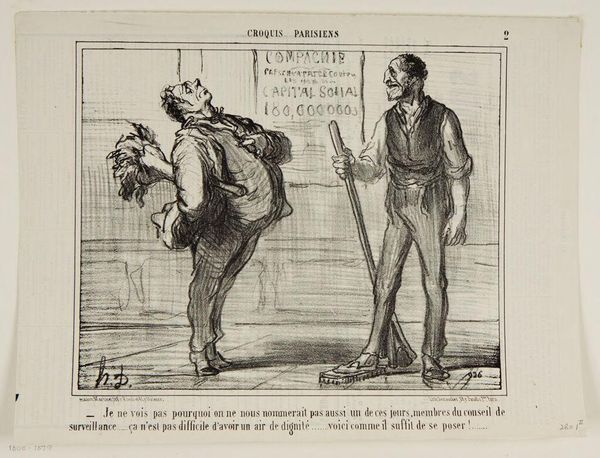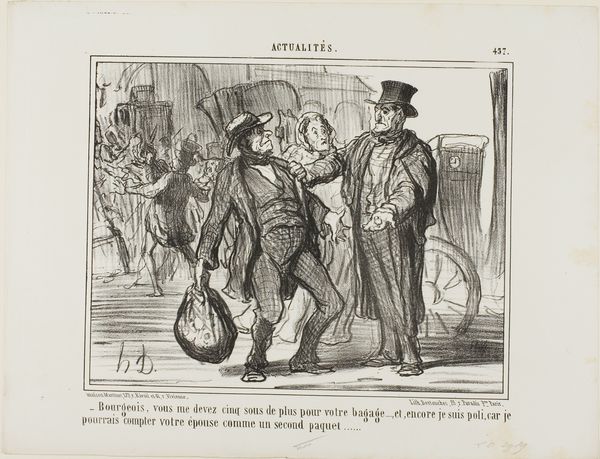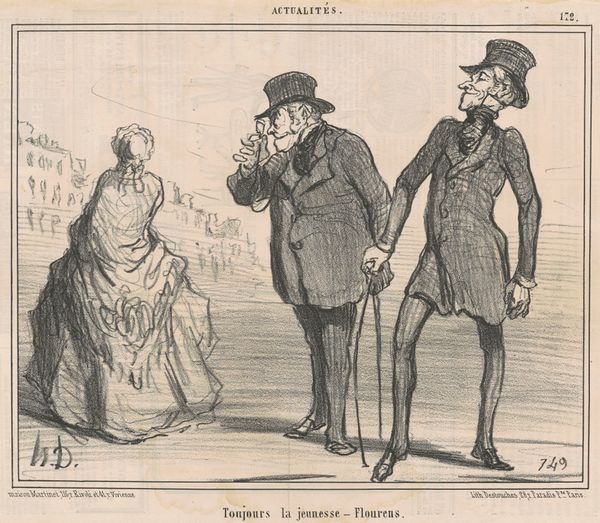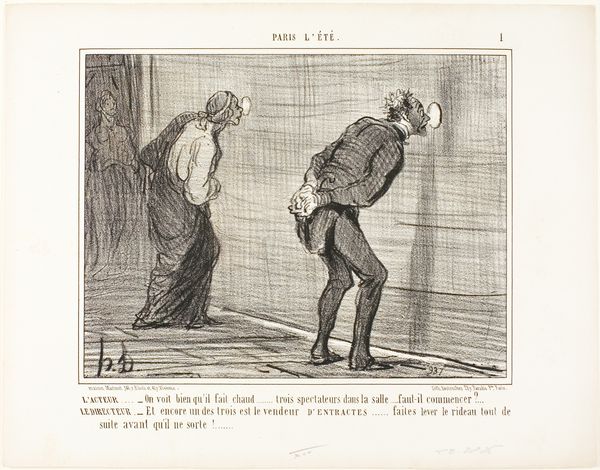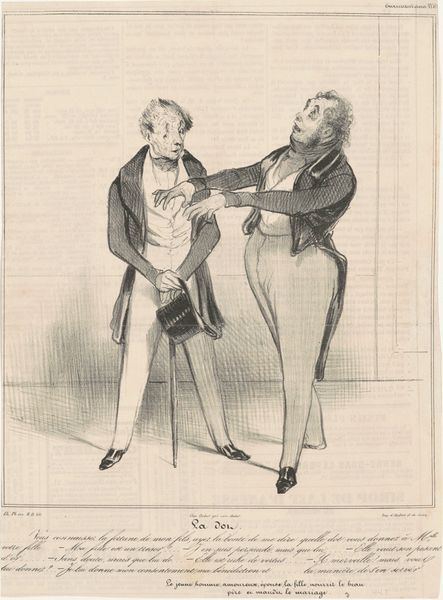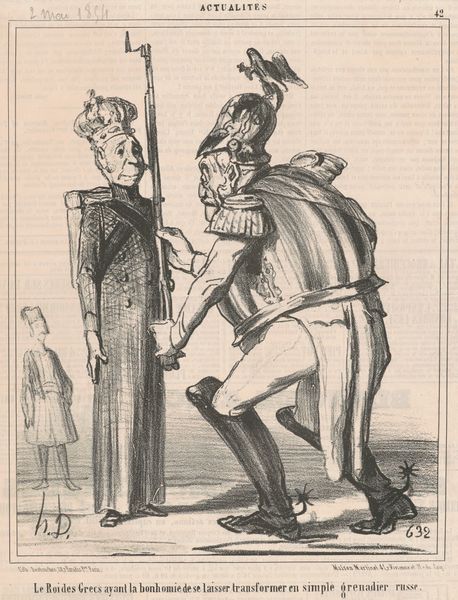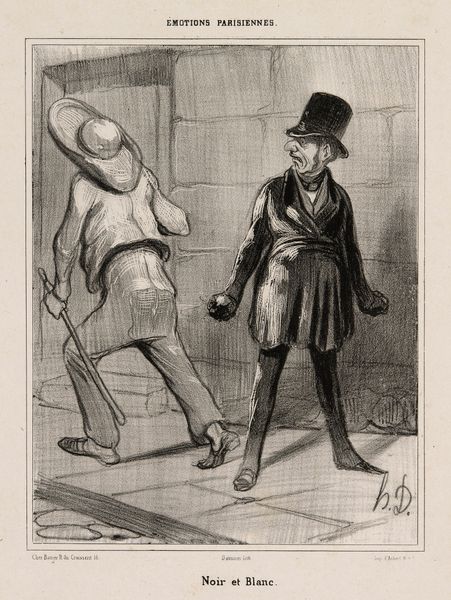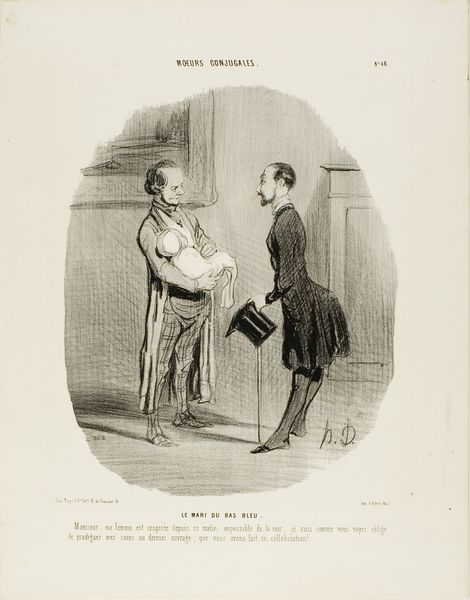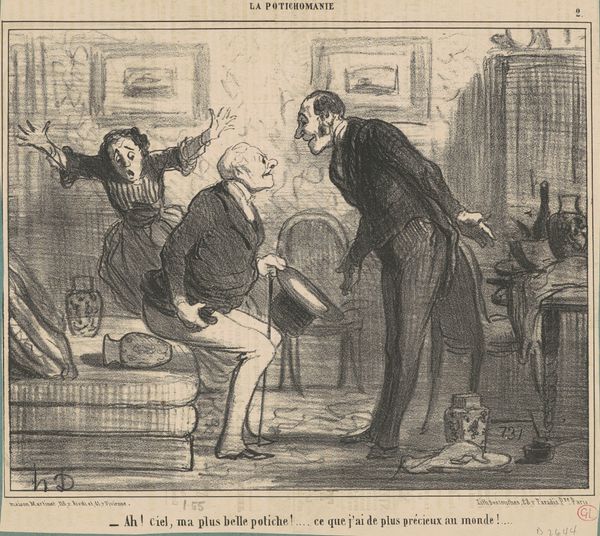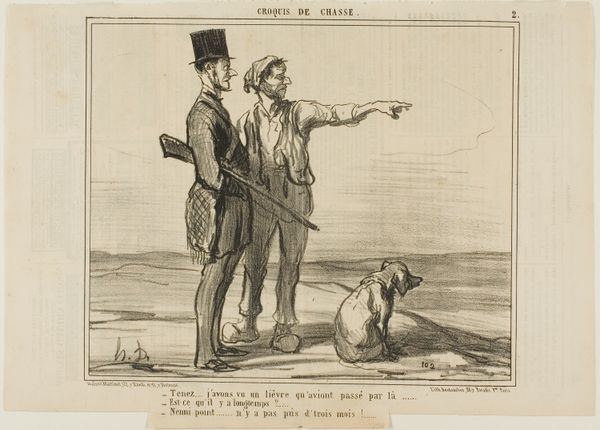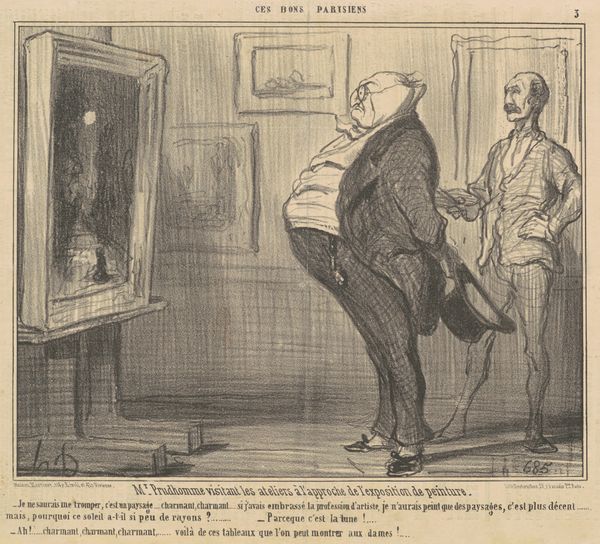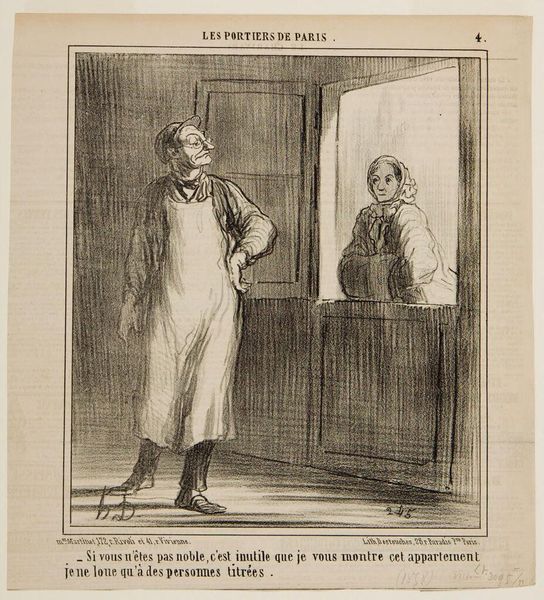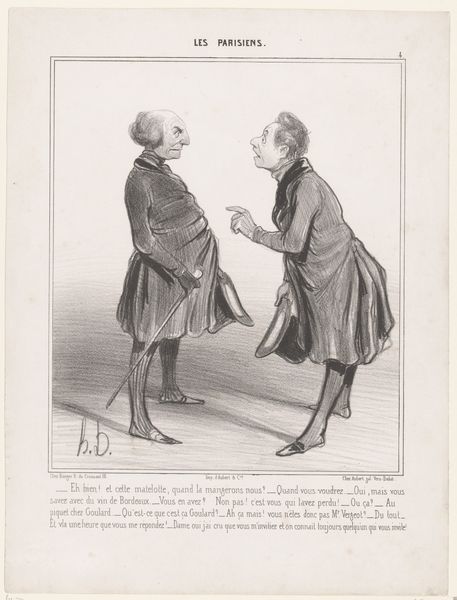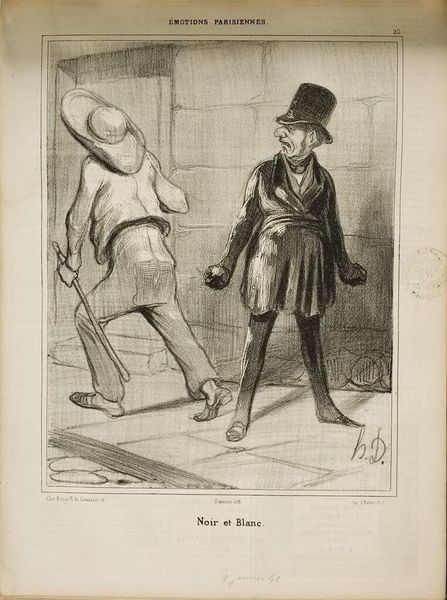
“- I really don't see why we shouldn't be nominated members of the surveillance council one of these days..... after all it isn't that difficult to look dignified... how about a pose like this?,” plate 2 from Croquis Parisiens 1856
0:00
0:00
drawing, lithograph, print, paper
#
drawing
#
comic strip sketch
#
aged paper
#
light pencil work
#
lithograph
# print
#
old engraving style
#
paper
#
personal sketchbook
#
ink drawing experimentation
#
pen-ink sketch
#
france
#
sketchbook drawing
#
storyboard and sketchbook work
#
sketchbook art
Dimensions: 205 × 253 mm (image); 279.5 × 358.5 mm (sheet)
Copyright: Public Domain
Editor: We're looking at “- I really don't see why we shouldn't be nominated members of the surveillance council one of these days..... after all it isn't that difficult to look dignified... how about a pose like this?," plate 2 from *Croquis Parisiens*, a lithograph by Honoré Daumier, created in 1856. The lines are so expressive, almost caricatured, and I’m curious to know more about the artist’s choice of form. How do you interpret Daumier's use of line and form in this piece? Curator: Notice how Daumier employs line not merely to define the figures, but to create a sense of volume and texture. The hatching and cross-hatching build depth, particularly in the garments. Ask yourself, what effect does this focused rendering of fabric have on the overall composition? Does it distract or complement? Editor: It definitely gives them weight, and contrasts sharply with the sketchy background. Curator: Precisely. The strategic deployment of light and shadow – observe the concentration of dark lines in the folds of the clothing versus the relatively blank space behind – sculpts the figures, lending them a tangible presence. It emphasizes the materiality of the clothing itself, almost elevating the everyday. Editor: So the *how* of the depiction becomes as important as the *what*? The clothing suggests social commentary itself. Curator: Indeed. Consider, too, the use of perspective and proportion. Are the figures depicted naturalistically? Is there an exaggeration or distortion that influences your interpretation of their interaction and purported social standing? Editor: I see what you mean, there’s an element of exaggeration. Reflecting on your point regarding line and shadow, I appreciate now how integral they are to building the characters and telling a silent story. Curator: It's in that delicate balance of form and intention, rendered with exceptional command of technique, where the piece reveals its sophistication.
Comments
No comments
Be the first to comment and join the conversation on the ultimate creative platform.
